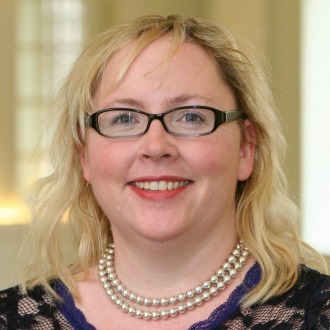Don’t let pharmacists cream the easy patients from the top

GPs are not against any properly thought-through initiative to improve flu vaccination uptake. However, the widening of the programme to allow community pharmacists to offer the jabs has been publicly questioned by many GPs – and the GPC in particular – who doubt the need for the move. Some have called for the whole scheme to be overhauled.
GPs have been the lynchpin for the successful delivery of most of the public health vaccination programmes for many years and they generally do an excellent job.
We are relied on to deliver the large-scale programmes like the flu campaign, as well as ‘mop-up’ schemes when other healthcare professionals are unable to capture their entire cohort.
Unfair fees
But the latter is done for the same vaccination fee, which is not appropriate. Delivering a large campaign brings economies of scale and efficiencies. The same cannot be said of ‘mop-up’ and catch-up campaigns.
In Wales, we have had community pharmacists included in the programme for the past two years. Their involvement is based on a desire to increase uptake, especially in those hard-to-reach groups GPs were apparently ‘failing to capture’.
Our experience has clearly demonstrated that this change has not done what it was supposed to do. A tiny number of additional immunisations were given by community pharmacy across Wales – the latest figures available show 1,537 in total.1 Many individual surgeries deliver more than this.
If you factor in the training costs and additional administration of including pharmacists, the cost-effectiveness argument is clearly not made. Also, pharmacists don’t have to send formal invitations to patients in at-risk groups, and can charge a private fee if they vaccinate customers who are not in those groups.
The risks of saying no
The programme as it stands looks and feels unfair.
There is a real risk that GPs will start saying ‘no’ to aspects of work that are no longer viable from a business perspective, particularly for smaller programmes that rely on GPs picking up this work where either there is no alternative, or other healthcare professionals are unable or do not wish to do it consistently across the UK.
What will inevitably happen is that when the chief medical officers suggest increasing vaccine orders, practices will rightly consider whether they can afford to do so if they are likely to be left holding expensive stock at the end of the campaign.
If GPs were to disengage from flu vaccination or the programme was given to other qualified providers, it is likely uptake would diminish, as most other providers pick and choose who they deliver it to.
And it is possible that some patients could be harmed by mixed provision. There will be confusion about who is doing what, reduced uptake and some groups could be left at risk if there is no provider willing to give the vaccine to them.
Evaluating the schemes
Proposals to widen involvement in these schemes need to be properly evaluated.
In particular, any proposal needs to identify clearly the value to patients, the cost-effectiveness to the NHS (given we are working in such a financially austere environment) and make sure that it is fair to all providers involved in the scheme.
From an operational perspective, public health needs a consistent national campaign for flu jabs.
Pharmacists should not be allowed simply to cream the easy patients off the top, leaving GPs with a higher workload.
And to reach targets, GPs need more investment to cover the administrative workload attached to the programme. Vaccination payment rates should also be uplifted to reflect the true costs of delivering the scheme for GPs, and the NHS should consider a higher payment for programmes given on a smaller scale, such as mop-up campaigns.
GPs should also be allowed to vaccinate community-based NHS and social care staff to save these workers time and improve uptake, as the figures for this group are significantly under target levels. They should also be allowed to vaccinate patients privately outside the at-risk groups.
GPs need a level playing field for providing vaccination services. Quite frankly, it is time for honest debate on this subject.
Dr Charlotte Jones is a GP in Swansea and chair of GPC Wales
Pulse July survey
Take our July 2025 survey to potentially win £1.000 worth of tokens

Visit Pulse Reference for details on 140 symptoms, including easily searchable symptoms and categories, offering you a free platform to check symptoms and receive potential diagnoses during consultations.










